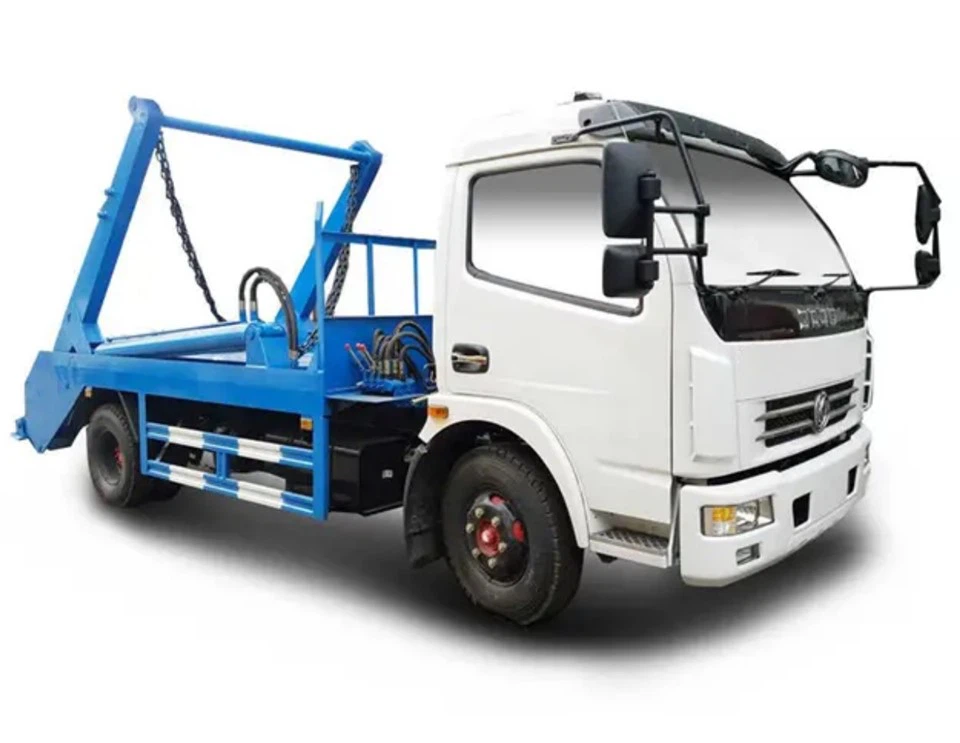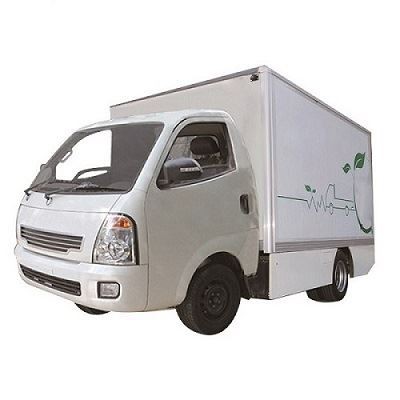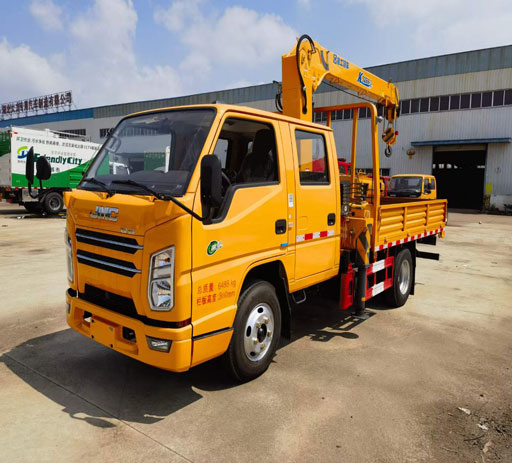Understanding Truck Mounted Generators: A Comprehensive Guide

Introduction to Truck Mounted Generators
A truck mounted generator is a portable power source mounted on a truck or trailer, designed to deliver electricity wherever it is needed. These generators serve multiple applications, from construction sites and events to emergency services and remote work locations. Their mobility and reliability make them pivotal in various industries, especially in scenarios demanding uninterrupted power supply. In this article, we will explore the features, benefits, types, maintenance tips, and real-life applications of truck mounted generators.
What is a Truck Mounted Generator?
A truck mounted generator is essentially a generator set installed on a truck chassis. These generators are powerful machines designed to provide a significant amount of electrical energy, enabling various tasks such as powering tools, lighting, and other essential equipment in remote locations.
Key Features of Truck Mounted Generators
- Mobility: Engineered for transportation, these generators can be easily relocated to different sites.
- Power Capacity: They vary in power output, suitable for both light-duty and heavy-duty applications.
- Durability: Built to withstand harsh conditions, ensuring longevity and reliability.
- Fuel Options: Available in multiple fuel types, including diesel, gasoline, and propane.
- Control Systems: Often equipped with advanced monitoring systems for optimal performance.
Benefits of Using Truck Mounted Generators
Truck mounted generators offer several advantages over traditional stationary generators.
1. Portability
The primary advantage is their mobility. Users can take power wherever they go, eliminating the need for permanent installations.
2. Versatility
These generators can be used in various applications, including construction, outdoor events, emergency services, and more.
3. Quick Setup
Setting up a truck mounted generator is often faster than installing a stationary one, allowing users to begin operations quickly.
4. Fuel Efficiency
Many truck mounted generators are designed for optimal fuel efficiency, providing extended run times and reducing operational costs.
Types of Truck Mounted Generators
Understanding the various types of truck mounted generators is essential in selecting the right one for your needs.
1. Diesel Truck Mounted Generators
Diesel generators are known for their durability and efficiency, making them suitable for heavy-duty applications. They are commonly used on construction sites and for industrial purposes.
2. Gasoline Truck Mounted Generators
Gasoline generators are usually lighter and quieter, ideal for smaller tasks or backup power at home. They are commonly used for recreational purposes and in landscaping operations.
3. Propane Truck Mounted Generators
Propane generators offer a cleaner energy source and have a longer shelf life compared to gasoline. They are often used for outdoor events and catering operations.
4. Hybrid Truck Mounted Generators
Hybrid models combine the benefits of different fuel types, offering flexibility in fuel use while maintaining high performance.
Key Components of a Truck Mounted Generator
Understanding the essential components can help users operate and maintain these generators effectively.
1. Engine

The engine powers the generator and is available in various configurations depending on the fuel type and power needs.
2. Generator Alternator
This component converts mechanical energy from the engine into electrical energy, which can then be used to power equipment.
3. Fuel Tank
The fuel tank stores the fuel needed for the engine, varying in size according to the generator’s power output and intended usage.
4. Control Panel
Most truck mounted generators come equipped with a control panel that provides information on performance and allows users to manage settings.
5. Chassis
The chassis supports the generator and is crucial for mobility. It must be robust enough to handle the weight and any movement during transport.
Operating a Truck Mounted Generator
To maximize the efficiency and lifespan of a truck mounted generator, follow these operational guidelines.

1. Pre-Operation Checks
- Inspect the fuel levels and ensure there are no leaks.
- Check the oil levels and replace if necessary.
- Examine cables and connections for wear or damage.
2. Safe Operation Practices
- Ensure the generator is placed on stable ground.
- Keep the area around the generator clear from flammable materials.
- Do not operate in enclosed spaces to prevent carbon monoxide buildup.
3. Periodic Maintenance
- Change oil and filters as recommended by the manufacturer.
- Inspect and tighten loose connections and nuts.
- Test the generator regularly to ensure it functions properly.
4. Winterization
In colder climates, it’s essential to winterize the generator to prevent fuel freezing and engine damage. This includes using winter-grade fuel and insulating components.
Real-Life Applications of Truck Mounted Generators
Truck mounted generators have diverse applications across various industries. Here are a few examples:
1. Construction Sites
In construction, these generators provide reliable power for tools, lighting, and temporary offices.
2. Outdoor Events
From concerts to weddings, truck mounted generators ensure that lighting, sound systems, and catering services have the power they need.

3. Emergency Services
During natural disasters or power outages, emergency services rely on truck mounted generators for critical functions like communication and medical operations.
4. Agricultural Use
Farmers use these generators for operating equipment in remote areas, powering irrigation systems, or during harvesting when electricity is unavailable.
Purchasing a Truck Mounted Generator
When considering purchasing a truck mounted generator, take into account the following factors:
1. Determine Power Requirements
Calculate the total wattage needed for all equipment you plan to power, considering additional capacity for future needs.
2. Choose the Right Fuel Type
Select a generator based on your fuel preference, availability, and intended use. Consider factors like running costs and emissions.
3. Evaluate Noise Levels
Noise can be a significant factor, especially at public events or in residential areas. Consider generators specifically designed for noise reduction.
4. Compare Brands and Models
Research different manufacturers and their models, paying attention to reviews, warranties, and customer service availability.
Maintenance Tips for Truck Mounted Generators
Regular maintenance is crucial for optimal performance and longevity of truck mounted generators.
1. Scheduled Servicing
Follow the manufacturer’s recommended maintenance schedule for oil changes and parts replacement.
2. Keep It Clean
Regularly clean the exterior and interior to prevent dirt and debris from affecting performance.
3. Fuel Maintenance
Use fresh fuel and consider adding a stabilizer to prevent degradation and gumming in the fuel system.
4. Store Properly
If not used for an extended period, store the generator in a dry environment and check it regularly for any issues.
FAQs about Truck Mounted Generators
1. What are the advantages of using a truck mounted generator over a stationary generator?
Truck mounted generators offer mobility, versatility, and quick setup, making them ideal for multiple applications where power is needed on the go.
2. How do I choose the right size truck mounted generator?
Calculate the total wattage needed for your equipment and select a generator that meets or exceeds this capacity, including some extra for future needs.
3. Can I power my home during an outage with a truck mounted generator?
Yes, many people use truck mounted generators as backup power sources during outages, but be sure to connect them safely and follow local codes.
4. How often should I service my truck mounted generator?
It is recommended to follow the manufacturer’s guidelines for servicing, typically every 50 to 100 hours of operation, which includes oil changes and inspections.
5. Are truck mounted generators noisy?
Noise levels vary by model. Some are specifically designed for quieter operation, making them suitable for outdoor events and residential areas.
6. What can a truck mounted generator power?
Truck mounted generators can power tools, lighting, cooling systems, heaters, and other electrical devices depending on their wattage capacity.
